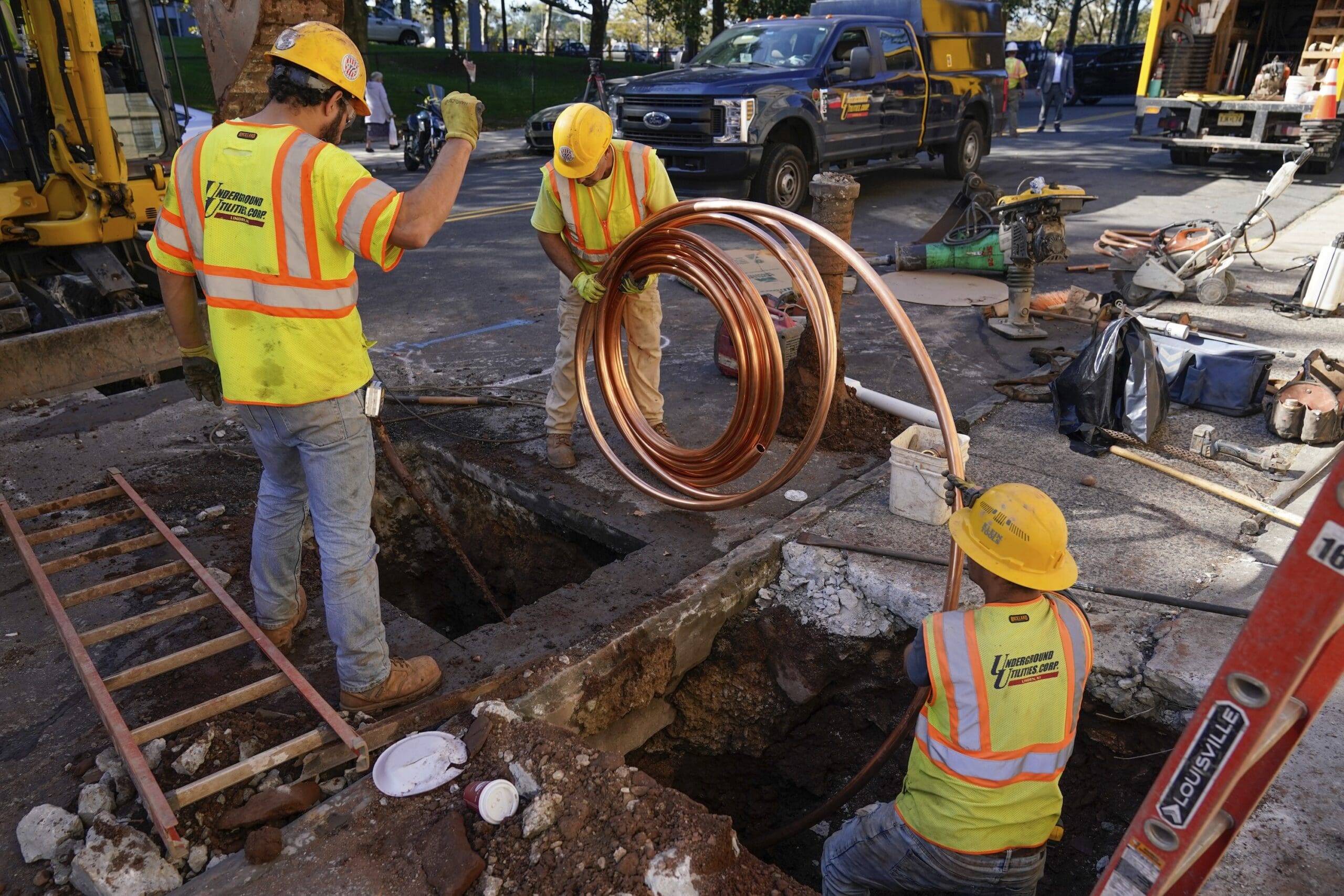Michigan panel approves controversial tunnel plan for Line 5 oil pipeline
The Michigan Public Service Commission approved plans to replace an oil pipeline in the Straits of Mackinac with one housed in an underground tunnel, despite concerns from residents.

Jade Prange, 24, of Traverse City, first spoke out against the Line 5 oil pipeline located underneath Michigan’s waterways in 2019, when the Grand Traverse County Commission passed a resolution in support of a project to replace the oil pipeline with one housed in an underground tunnel.
Five years later, she again spoke out about the pipeline’s harmful effects on the environment, this time in front of the Michigan Public Service Commission, which approved the tunnel’s construction at a Dec. 1 meeting.
“I have spent one-fifth of my life fighting this tunnel, and I will gladly spend the rest of my life if I must,” Prange said. “This pipeline needs to be shut down and this tunnel should never be built. By permitting this tunnel to go forward, you are endangering the Great Lakes and the future of Michigan residents. Our water is precious and sacred, and when we say water is life, we mean it. You are endangering our lives with this decision.”
The issue has been a source of contention for Michigan’s tribal members and environmentalists for decades.
Line 5 carries a daily average of 540,000 barrels of oil across 645 miles from Wisconsin, through the Straits of Mackinac, and down to Ontario, Canada.
Opponents claim Enbridge, the Canadian-based company that manages the pipeline, has threatened Michigan’s wildlife and water and its people by repeatedly failing to comply with the easement between the company and state to operate Line 5 ever since its construction in 1953. According to the Sierra Club, the pipeline has had 29 spills in the last 50 years, releasing a total of 1.1 million gallons of oil into the environment.
Line 5 gained widespread attention in 2010 when more than 840,000 gallons of crude oil from the pipeline spilled into the Kalamazoo River and Talmadge Creek. The six-foot break resulted in one of the worst inland oil spills in U.S. history.
Gov. Gretchen Whitmer terminated the easement in 2020 in an attempt to shut down the pipeline. Enbridge has continued to run Line 5, arguing Michigan doesn’t have the authority to revoke the agreement.
The commission’s recent decision was met with audible groans and disapproving comments from the many Michigan residents who traveled from all over the state to Lansing to attend the meeting. MPSC Commissioner Dan Scripps said he knows the tunnel’s construction will disappoint the thousands of people who have spoken out against it over the years, but that their perspectives improved the overall process and final result.
Enbridge initially filed an application three years ago seeking siting approval to replace and relocate the Line 5 section through the Straits of Mackinac into a new tunnel beneath the lakebed. There are currently two pipelines sitting near or on top of the lakebed in the approximately four miles of Line 5 crossing the Straits.
Even with the commission’s order, Enbridge will still need to submit a risk management plan to the state, as well as receive approval from the Mackinac Straits Corridor Authority and the U.S. Army Corps of Engineers.
The commission found that there is a public need for the oil transported by the pipeline and that alternative means of transportation sought in accordance with the Michigan Environmental Protection Act such as trucks, rail or oil tankers would be more costly and damaging to the environment. It also identified the need for a tunnel that protects the pipeline in the event that a ship anchor strikes the exposed pipes.
“It happened just five years ago when an anchor struck and dented the dual pipelines lying on the bottomlands of the Great Lakes,” Scripps said. “Fortunately, the pipeline didn’t rupture in that case, but there’s no guarantee we’d be so lucky the next time.”
Scripps also pointed to the legislation Whitmer signed into law in November, which created a clean energy standard for the state. He said the law will eventually phase out Michigan’s reliance on fossil fuels and the infrastructure currently used to transport it.
“In the meantime, we have a responsibility to approve the infrastructure needed to meet our energy needs,” Scripps said.
However, the commission’s reassurance was no comfort for those who felt that past failures and the structural integrity of the 70-year-old pipeline were enough reasons to shut it down.
Andrea Pierce of the Little Traverse Bay Bands of Odawa Indians, headquartered in Harbor Springs, said the commission’s ruling will likely be appealed.
“You’re supposed to protect the Great Lakes, protect us,” Pierce said. “These pipelines and tunnels are going to go through my tribal land, to my people’s land, to my community. And I think that’s just reprehensible. I think what you’ve done here is just negligence, complete and utter negligence.”




